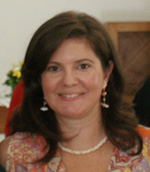 by Clarisse Olivieri de Lima
by Clarisse Olivieri de Lima
Part of being a global citizen is being able to articulate and take positions regarding one's role and responsibilities in the world. Global citizens need to be aware and concerned with what is happening not only in their nation and geographic region but also throughout the world. Global citizens need to develop a voice to promote social and economical justice for themselves and their fellows by demonstrating care and respect for other’s welfare.
Promoting a meaningful and socially valued use of information and communication technologies (ICTs) is a crucial task that 21st century teachers may pursue in order to cope with their students' education. The set of basic skills needed to fully operate and participate in a globalized society include the new literacies needed for using Internet-based information.
The Travel Buddies Project is an intercultural exchange project where students from different countries select mascots to go on a journey as a visitor in a foreign culture. In an edition of this project, students in the United States and Brazil participated by sending their buddies to each other's location. As guests, the mascots were involved in activities with the children both inside and outside of school. Students kept in touch throughout the exchange by recording events and activities using photographs, blog posts, email exchanges, and diary/journal entries.
Many subjects from the curriculum can be reinforced in a project such as this one. Connections to reading, writing, the Arts (e.g. music, dance, artistic expression) and Humanities are inherent in all the learning activities that were developed as part of this exchange. Students engaged regularly in shared reading and writing activities using the blogs to register their visitor's activities. They also developed their own individual writing and technical skills through journal entries and the use of software products to create graphic images. Many of the lessons were interdisciplinary in nature and provided opportunities for collaboration between classroom teachers.
Blog posts were used as the central mode of communication between the classes and often initiated spontaneous lessons based on the content that was posted by the partner class. All the activities done by the classes and the mascots that were posted on the blog were done so according to safety and ethical rules established by each school in order to preserve the students’ identities.
Some additional skills that are essential for children to develop for success in today’s world were also emphasized during this project. First, students learned the nuances of acceptable technology etiquette essential to forging respectful social interactions and good citizenship. While the Brazilian and American children interacted through the blog postings, they also practiced examining how individuals interpret messages differently, how values and points of view are included or excluded, and how media can influence their beliefs and behaviors. Additionally, the students learned how to effectively apply more appropriate expressions and interpretations in diverse and multicultural environments.
Telecollaborative projects such as this one provide an opportunity for participants to develop global citizenship skills that are indispensable for their living in a globalized, diverse, and flattened world.
This project was coordinated by Dr. Clarisse Lima (EdTech Consultant, Rio de Janeiro, Brazil) and Dr. Laurie Henry (University of Kentucky, USA) and was held during the year of 2009.
For complete information:
Henry, L. & Lima, C. (2012). Promoting global citizenship through intercultural exchange using technology: The Travel Buddies Project. In Kelsey, S. and Amant, K. (ed.) Computer-Mediated Communication across Cultures: International Interactions in Online Environments. Hershey, PA: IGI Global. (pp. 100-119).
To visit the blogs:
Brazil: http://tbteresiano1ano.blogspot.com.br/
USA: http://graytravelbuddies.blogspot.com.br/?zx=4889ea4916054b09
Clarisse Olivieri de Lima is an educational technology consultant in Rio de Janeiro, Brazil.
This article is part of a series from the International Reading Association Technology in Literacy Education Special Interest Group (TILE-SIG).